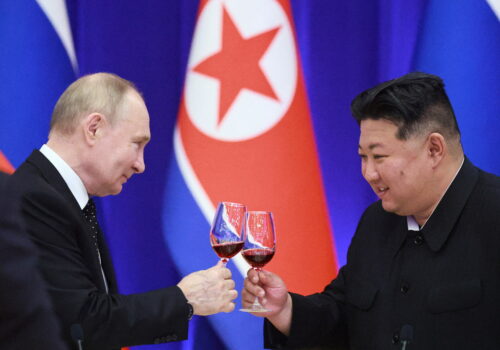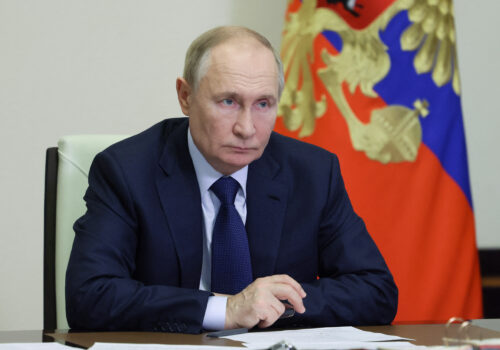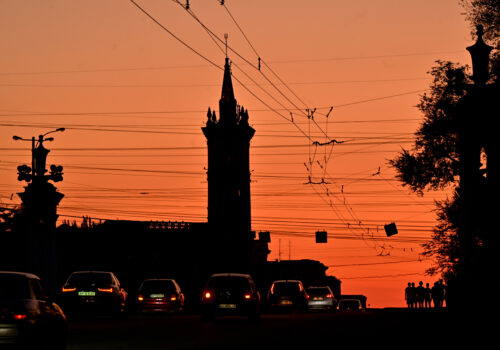According to recent reports, Russia is currently stepping up its sabotage campaign across the EU as part of Moscow’s hybrid war against the West. “Russia is conducting an intensifying campaign of hybrid attacks across our allied territories, interfering directly in our democracies, sabotaging industry, and committing violence,” stated NATO Secretary General Mark Rutte on November 4. “This shows that the front line in this war is no longer solely in Ukraine. Increasingly, the front line is moving beyond borders to the Baltic region, to Western Europe, and even to the high north.”
Rutte’s claims are not new. The Russian authorities have long faced accusations of everything from cyberattacks and political manipulation to the deliberate spread of disinformation to destabilize individual countries and sow discord among Western allies. Russian hybrid warfare operations are now often kinetic operations within Western countries. Incendiary devices that ignited in Germany and the United Kingdom in July 2024 were reportedly part of a covert Russian operation that aimed to start fires aboard cargo and passenger flights heading to the US and Canada.
With the Russian invasion of Ukraine now approaching the three-year mark, Moscow’s campaign of hybrid hostilities throughout the Western world appears to be escalating. As Russia’s tactics evolve, governments and security services throughout the West must work together to identify threats and counter the Kremlin.
Stay updated
As the world watches the Russian invasion of Ukraine unfold, UkraineAlert delivers the best Atlantic Council expert insight and analysis on Ukraine twice a week directly to your inbox.
Information operations are a central feature of Russian efforts to weaken the West. Since the beginning of Russia’s full-scale invasion of Ukraine, the messaging emanating from Moscow has shifted from implausible accusations of a “Nazi regime” in Kyiv toward a greater focus on the inevitability of Russian military victory and the unreliability of Ukraine as a partner. These messages are being actively promoted throughout the West by Russian sources and by Moscow’s proxies.
For much of the past decade, Russia relied primarily on its own state-sponsored media outlets like RT and Sputnik to push narratives designed to undermine Western unity and polarize public opinion in democratic countries. However, in recent years there have been increasing efforts to co-opt non-traditional media and social media personalities throughout the West, such as US podcast hosts. This has made it possible for Russia to reach broader audiences, while also enhancing the credibility of its messaging by avoiding any overt links to the Kremlin.
Cyberattacks are another significant tactic used by Russia to undermine stability throughout the West. By disrupting communications, sowing chaos, and eroding public trust in institutions, Russian cyber warfare has the potential to disrupt and destabilize Western societies. One recent example was the December 2023 cyberattack on Ukraine’s largest telecommunications provider, which temporarily left millions of subscribers without mobile and internet access.
Russia has also sought to fuel political tensions by supporting populist movements and parties that align with the Kremlin’s own anti-NATO and anti-EU narratives. Throughout Europe and North America, the Kremlin is accused of empowering anti-establishment political parties and movements of all kinds. Moscow’s backing for far-right and far-left movements has been opportunistic rather than ideological, with an emphasis on support for any groups deemed capable of destabilizing domestic politics in Western countries. This approach has proved effective in amplifying the Kremlin’s narratives, while also making it harder to counter Russian influence and maintain support for Ukraine.
A further avenue of malign Russian influence is economic leverage, especially through the weaponized use of energy exports. While Europe’s overall dependence on Russian energy has declined significantly since the start of the full-scale invasion of Ukraine in February 2022, A number of EU countries continue to rely heavily on Russian energy supplies. This makes them vulnerable to political pressure from Moscow.
Eurasia Center events

Western policymakers need to recognize that the hybrid security challenges currently coming from Russia are not going to go away soon. On the contrary, Putin is clearly preparing his country for a prolonged confrontation with the West. While open military conflict between Russia and NATO is still viewed as unlikely, Western nations must be better prepared to defend themselves against Russia’s escalating efforts to divide and destabilize them. This will require a multi-faceted approach that reflects the diverse nature of the hybrid threats posed by the Putin regime.
Addressing disinformation is vital. Western governments must intensify efforts to combat Russian information warfare by measures including support for fact-checking initiatives and improving media literary among the public. Before embarking on new steps of this nature in the information sphere, it is important to note that Russia has a record of successfully pushing back against countermeasures by framing them as attempts to suppress free speech.
Strengthening cyber defenses is another key task. NATO much invest in the recently announced Integrated Cyber Defence Centre to protect member states from Russian cyberattacks. The alliance should prioritize information sharing, joint cyber security exercises, and the development of rapid response teams to mitigate the impact of future attacks.
The Kremlin’s sophisticated brand of hybrid warfare poses a serious threat to Western unity and represents a critical front in the global confrontation that has emerged following the Russian invasion of Ukraine. By exploiting existing political, economic, and social vulnerabilities across Europe and North America, Russia aims to weaken the West from within. This requires a firm and coordinated response that includes efforts to counter disinformation, strengthen cyber defenses, and reduce energy dependence on Russia. Addressing these challenges is crucial for the future of transatlantic security in an increasingly complex and unpredictable geopolitical climate.
Doug Livermore is the National Vice President for the Special Operations Association of America, Senior Vice President for Solution Engineering at the CenCore Group, and the Deputy Commander for Special Operations Detachment – Joint Special Operations Command in the North Carolina Army National Guard. The views expressed are the author’s and do not represent official US Government, Department of Defense, or Department of the Army positions.
Further reading
The views expressed in UkraineAlert are solely those of the authors and do not necessarily reflect the views of the Atlantic Council, its staff, or its supporters.

The Eurasia Center’s mission is to enhance transatlantic cooperation in promoting stability, democratic values and prosperity in Eurasia, from Eastern Europe and Turkey in the West to the Caucasus, Russia and Central Asia in the East.
Follow us on social media
and support our work
Image: A star atop of the tower of the Kremlin is seen against partial lunar eclipse, in Moscow, Russia. September 18, 2024. (REUTERS/Marina Lystseva)




